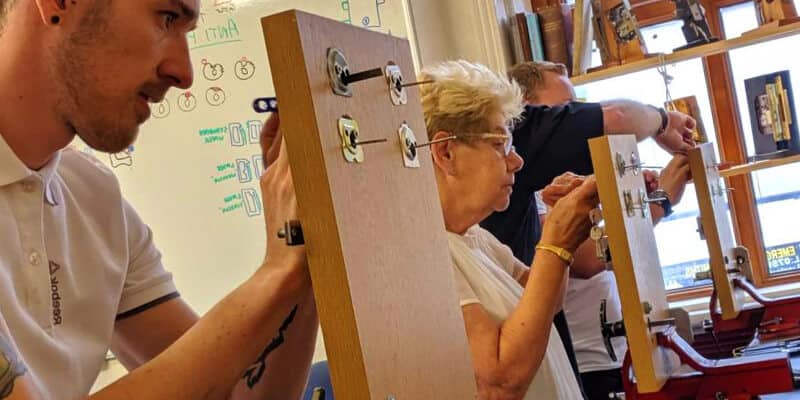Locksmithing is an ancient profession that has been around since the invention of the lock itself. From the simple wooden locks of ancient times to the sophisticated digital locks of today, locksmithing has evolved to become an indispensable trade that ensures the safety and security of people and their belongings.
If you’re fascinated by the art and science of locksmithing and want to learn how to become a skilled locksmith, this article is for you. Here, we’ll take you through the essential steps to becoming a locksmith from the comfort of your own home.
So, grab a cup of coffee, sit back, and let’s unlock the secrets of Locksmith Training together.
Embrace the Basics of Locksmithing
Locksmithing is a specialized trade that requires a combination of mechanical aptitude, attention to detail, and good communication skills. At its core, locksmithing involves the installation, repair, and maintenance of locks and security systems. As a locksmith, you’ll be responsible for helping people gain access to their homes, cars, and businesses when they’re locked out or have lost their keys.
To become a skilled locksmith, you need to have a basic understanding of how locks work and the different types of locks available. You also need to be familiar with the tools and equipment used in locksmithing.
Learn Essential Skills and Tools
Locksmithing requires a range of skills and tools that are essential for success. Some of the skills you need to become a skilled locksmith include:
- Mechanical aptitude: You need to have a good understanding of how locks work and how to fix them.
- Attention to detail: You need to be meticulous in your work and pay attention to even the smallest details.
- Good communication skills: You need to be able to communicate effectively with clients to understand their needs and provide the best possible service.
- Good hand-eye coordination: You need to have good manual dexterity and coordination to work with the small components of locks.
Some Of the Essential Tools You Need to Become a Skilled Locksmith Include:
- Lock pick set: This is the primary tool used to open locks without a key.
- Key duplicator: This machine is used to make duplicate keys quickly and accurately.
- Drill press: This tool is used to drill holes in locks.
- Key cutting machine: This machine is used to cut keys to the correct shape and size.
- Tension wrench: This tool is used to apply torque to the lock’s cylinder.
- Plug spinner: This tool is used to rotate the lock’s plug in the opposite direction.
- Lock scope: This tool is used to see inside the lock to help diagnose problems.
Find the Right Training Program
The next step to becoming a skilled locksmith is to find the right training program. Many online training programs and courses are available that can help you learn the skills you need to become a successful locksmith.
When choosing a training program, look for one that offers hands-on training and provides you with the opportunity to practice your skills. You may also want to consider a program that offers certification upon completion.
Practice Your Skills
Practice is key to becoming a skilled locksmith. The more you practice, the better you will become. You can practice by working on your own locks or by offering your services to friends and family.
As you practice, be sure to keep a record of your work, including the locks you’ve worked on and the techniques you’ve used. This will help you build a portfolio of your work that you can show to potential clients and employers.
Build Your Own Successful Locksmith Business
Once you have the skills and knowledge to become a skilled locksmith, the next step is to build your own successful locksmith business. Here are some tips to get started:
- Define your niche: Determine what type of locksmith services you want to specialize in, such as residential, commercial, or automotive locksmithing.
- Create a business plan: Develop a detailed plan for your locksmith business, including your goals, target market, and marketing strategies.
- Get licensed and insured: Check the licensing requirements in your area and obtain any necessary permits or certifications. Also, make sure to get liability insurance to protect your business.
- Invest in quality equipment: Purchase high-quality tools and equipment that will help you provide the best possible service to your clients.
- Build a strong online presence: Create a website and social media accounts to showcase your services and connect with potential clients.
- Provide excellent customer service: Focus on providing exceptional service to your clients and building strong relationships to earn repeat business and referrals.
Locksmithing is a rewarding profession that offers many opportunities for those who are skilled and dedicated. With the right training, tools, and business strategies, you can become a successful locksmith and provide an essential service to your community.


